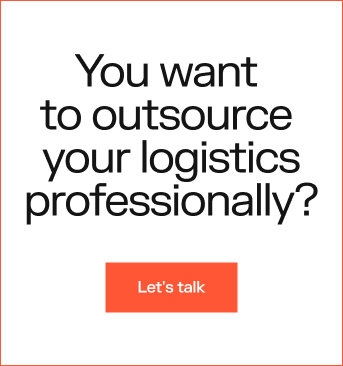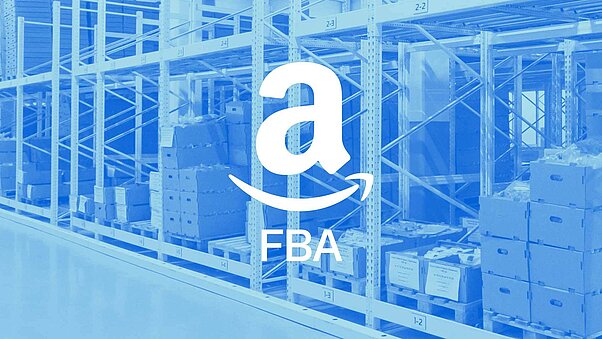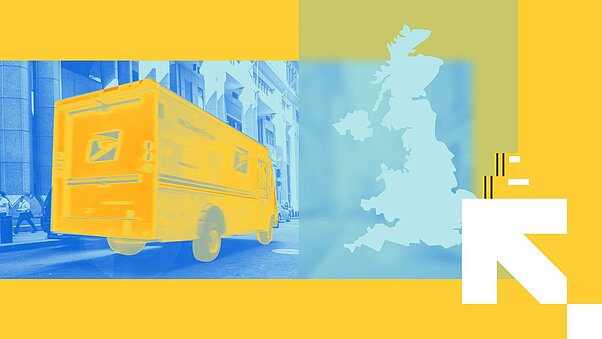3PL Explained: Everything You Need to Know About Third Party Logistics

Anyone looking to optimise their logistics processes while saving both time and costs can hardly avoid 3PL and fulfilment. The term “Third Party Logistics” refers to outsourcing logistics tasks to specialised service providers – also known as fulfilment providers – who professionally handle storage, order picking, shipping, and returns.
This allows e-commerce businesses to benefit from efficient structures, automated processes, and maximum flexibility – delivering a clear competitive advantage in the fast-paced world of online retail.
In this article, you’ll learn everything you need to know about 3PL, including practical examples. Let’s get started!
What Does 3PL Mean? A Definition
- The abbreviation 3PL stands for “Third Party Logistics.” It refers to companies that provide logistics services on behalf of other businesses. In many English-speaking markets, the term 3PL is often used interchangeably with “fulfilment.”
These fulfilment providers are essentially 3PL companies that handle the storage, packaging, shipping, and returns management of products for e-commerce businesses or online shops, often through automated systems.
Imagine running an e-commerce brand where managing logistics becomes too time-consuming or complex. That’s where a 3PL provider steps in – a fulfilment specialist that takes care of every logistical task, so you can focus on growing your business.
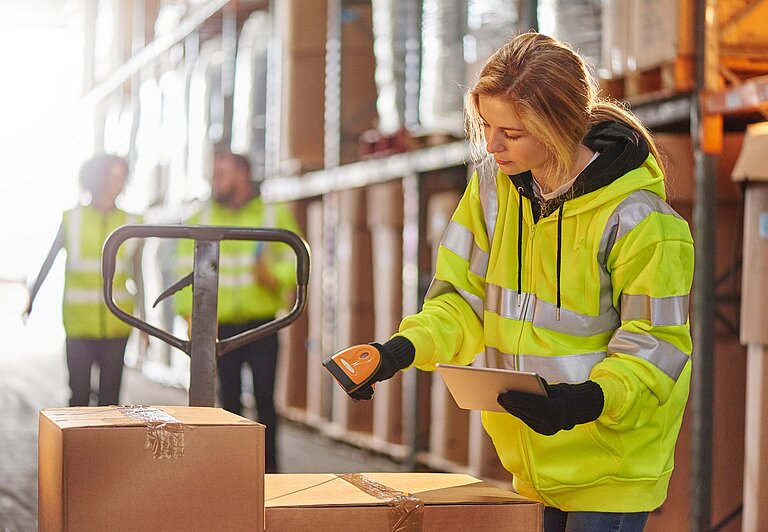
What Exactly Does a 3PL Provider Do?
A 3PL provider (Third Party Logistics provider) works on behalf of e-commerce businesses and takes on a wide range of logistics tasks throughout the entire supply chain. These include:
- goods receipt,
- warehousing,
- order picking (pick & pack),
- shipping, and
- returns management.
All-in-one providers such as Quivo also handle the transportation of larger shipment volumes.
By outsourcing these processes to an experienced 3PL partner, companies benefit from more efficient operations, lower costs, and significantly greater flexibility — allowing them to focus more on their core business.
How 1PL, 2PL, 3PL and 4PL Differ
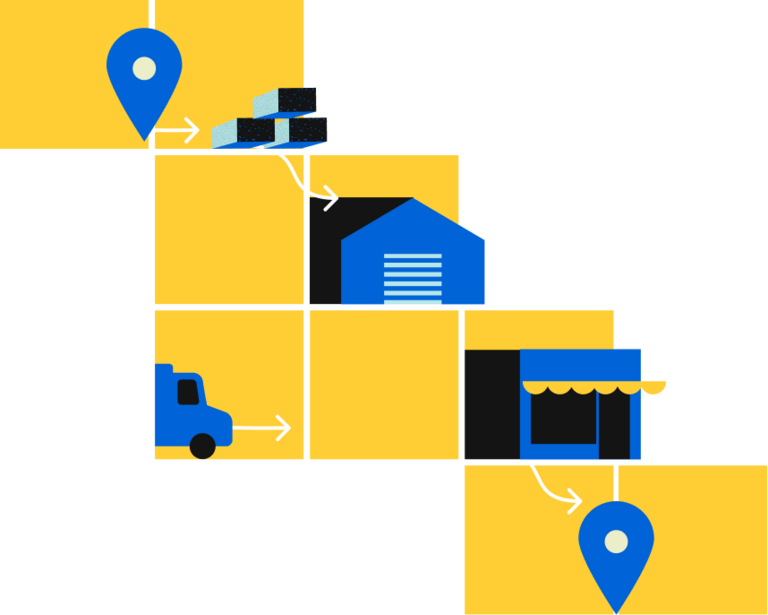
In logistics, the various “PL” levels describe how much of the logistics process a company manages itself versus what is outsourced to external partners.
- 1PL (First Party Logistics) – The company handles all logistics activities internally, from storage and transportation to distribution. No external partners are involved.
- 2PL (Second Party Logistics) – Certain tasks, such as transportation, are outsourced to external service providers. However, the company retains control of the remaining logistics processes and manages them independently.
- 3PL (Third Party Logistics) – This is a more comprehensive approach. In so-called fulfilment, a specialised logistics provider like Quivo takes over most or even all logistics operations. The company can therefore focus on its core business, while the 3PL partner ensures smooth and efficient processes through its expertise.
- 4PL (Fourth Party Logistics) – The provider not only performs logistics tasks but also manages and optimises the entire supply chain. This includes coordinating multiple partners, systems and processes to deliver a fully integrated logistics solution. The result is greater transparency, flexibility and performance, especially in complex supply chains.
A Brief History of Logistics
The different stages of logistics have evolved over time in response to growing demands for efficiency and flexibility. In the early days of commerce, companies typically relied on 1PL, managing all transport and storage processes internally.
As trade volumes increased and globalisation accelerated, businesses began to seek specialised support. This led to the rise of 2PL, allowing specific tasks such as transportation to be outsourced for greater efficiency.
With increasingly complex supply chains and the rapid growth of digital commerce, 3PL emerged — external fulfilment providers began taking over entire logistics operations and offering integrated solutions.
Finally, digital transformation and the need for strategic, end-to-end management among large corporations gave rise to 4PL, where a central partner coordinates and optimises the entire supply chain for maximum performance.
How 3PL – “Third Party Logistics” – Works
The term “Third Party” in 3PL highlights the involvement of an external company — one that is neither the manufacturer nor the retailer, but an independent intermediary within the supply chain.
These third-party providers are logistics specialists who take the burden of complex operational processes off a company’s shoulders. By fully embracing the principle of logistics outsourcing, businesses can streamline operations and improve overall efficiency.
Here’s a simple example:
A shoe manufacturer wants to expand internationally and distribute products worldwide. Instead of building its own warehouses and managing global shipping, it partners with a 3PL provider, also known as a fulfilment company. The provider stores the shoes, processes orders, handles packaging and shipping, and manages potential returns. This allows the manufacturer to focus on production and marketing while the 3PL partner manages all logistics operations.
3PL vs 4PL: The Key Differences
While 3PL providers focus on specific logistics services, 4PL (Fourth Party Logistics) takes things a step further. A 4PL provider doesn’t just manage individual logistics tasks — it oversees the entire supply chain. This includes coordinating multiple 3PL partners, integrating technology, and continuously optimising processes.
You can think of a 4PL provider as a conductor, ensuring that every part of the supply chain works in harmony for maximum efficiency and transparency.
Why 3PL Is the Best Solution for E-Commerce Businesses
In e-commerce, every minute counts. Customers expect fast delivery, transparent processes, and reliable service. A 3PL provider offers the ideal foundation for meeting these expectations by managing all logistics operations professionally and efficiently.
1. Fast Order Processing
- Automated systems ensure smooth workflows from goods receipt to delivery.
- Short delivery times and low error rates boost customer satisfaction.
2. Flexible Scalability
- Capacity can be easily adjusted to seasonal demand or business growth.
- No need for additional investments in warehouse space or staff.
3. Efficient Returns Management
- The 3PL partner handles inspection, restocking, and documentation of returned items.
- This saves time and costs while ensuring customers receive a fast, reliable service.
4. Technological Integration
- Seamless integrations with platforms like Shopify, WooCommerce, or Amazon provide real-time visibility.
- Retailers always have a clear overview of inventory levels and shipping status.
5. Focus on Core Business
- Companies can focus on marketing, product development, and customer service, while the logistics partner takes care of everything else.
Efficient Fulfilment Through Smart 3PL Software Solutions
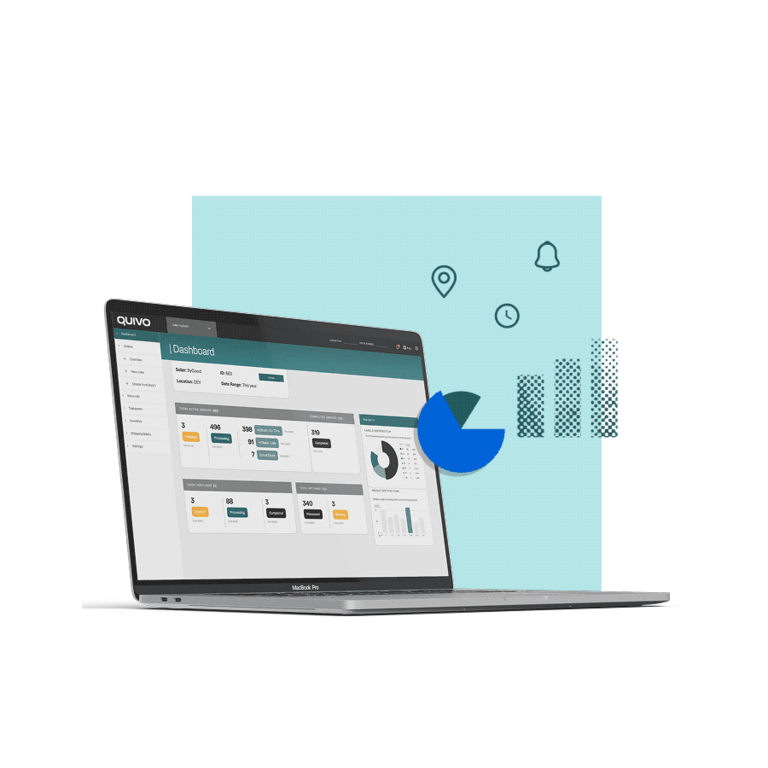
A powerful fulfilment software solution like the Quivo Connector is the core of a modern 3PL setup. It seamlessly connects all systems, processes, and partners to ensure every order is processed efficiently, transparently, and accurately.
Key features include multi-carrier shipping, allowing flexible management of different delivery services, as well as lightning-fast integration with existing shop systems and ERP platforms. Through a central dashboard, users can monitor all orders, shipments, and inventory levels in real time, while stock updates happen automatically. Shipment tracking and returns management are fully integrated — including photo documentation for maximum transparency and quality assurance.
With a tool like the Quivo Connector, fulfilment becomes significantly simpler and measurably more efficient. Its intelligent automation streamlines time-consuming workflows, reduces errors, and provides a solid data foundation for faster decision-making — a decisive competitive advantage for any e-commerce business.
Thr Advantages of 3PL
1. Cost Savings and Resource Efficiency
Companies don’t need to invest in warehouses, vehicles, or IT systems. Fixed costs are converted into variable costs — you only pay for what you actually use. Consolidated shipment volumes also lead to better rates for storage and transportation.
2. Professional Expertise and Modern Infrastructure
3PL providers have skilled professionals who manage complex logistics operations efficiently. Modern warehouse technology, digital tracking systems, and automation deliver maximum transparency and efficiency. Continuous process optimisation ensures access to the latest innovations in logistics.
3. Scalability and Flexibility
Storage and transport capacities can be quickly adjusted to seasonal fluctuations or market changes. Companies remain agile without needing long-term investments in additional resources. New markets become easier to enter thanks to many 3PL providers’ international networks.
4. Focus on Core Business
Outsourcing time-consuming logistics processes frees up capacity for strategic areas like product development, marketing, and customer service. Businesses can focus on their strengths while the logistics partner handles operations.
5. Improved Customer Satisfaction
Faster deliveries and reliable processing lead to higher customer satisfaction. Transparent processes and real-time tracking strengthen customer trust and loyalty.
6. Risk Reduction
Working with experienced 3PL providers significantly reduces errors, delays, and bottlenecks. The partner assumes responsibility for compliance with legal regulations, safety standards, and customs requirements.
What Makes 3PL Companies So Valuable?
A 3PL fulfilment company is more than just a service provider — it’s a strategic partner equipped with advanced tools, technologies, and a comprehensive logistics network with specialised infrastructure. With their expertise, 3PL providers advise clients, optimise processes, and ensure logistics operations are both effective and efficient.
Ultimately, these fulfilment providers take the weight of logistics off your shoulders, managing everything professionally from start to finish. At Quivo, we’re one of those fulfilment partners, delivering smooth, reliable fulfilment for over 1,500 brands worldwide.
- The best part? You focus on growing your business — while your logistics scales seamlessly with you. Got questions or need support with your logistics? Get in touch — no strings attached!
Sources
These are the largest transport companies in the world
www.capital.de
Statistics and market volume of the logistics market - Statista
statista.com
Image sources:
Quivo © 2025; Canva



